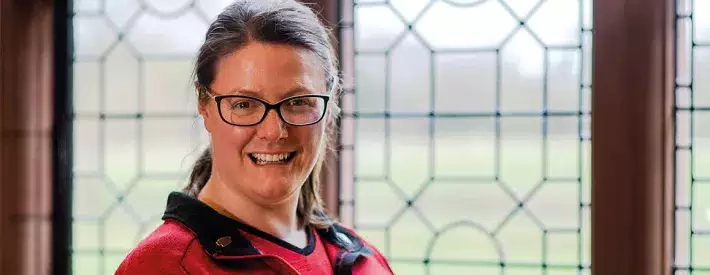Diversifying the motor industry

In this article: The IMI’s Patron’s Award winner for championing diversity in automotive, Hayley Pells, discusses how the industry can fill the skills gap by being more inclusive
The motor industry is a hugely diverse place when it comes to the number and variety of roles that are available to anyone wanting to start their career. But it still faces challenges to bring in talent to fill the skills shortages we all know exist.
One area that could help would be to grow the diversity in the workers ranks; a lot is of course already being done, but there’s more that could happen.
This year’s winner of the IMI’s Patron Award for those championing diversity in automotive, Hayley Pells, talks to MotorPro about how the industry is changing, what still needs to be done and what challenges she faced in the early part of her career.
What progress do you think has been made to open the industry to a greater level of diversity?
For gender equality sterling progress has been made, led by industry giants such as Arnold Clark and Sytner. Their contribution normalises that business benefits from inclusion and I, here at the small and independent end of things, fly that same flag.
What still needs to be done?
Acceptance and understanding will be key to an inclusive workforce, particularly with balancing care responsibilities. Working with care providers and allowing all employees an opportunity to balance work with family life will be part of what is needed to achieve inclusion. To free women, we must also free men.
Does the industry have an image problem that makes it unattractive to a more diverse workforce?
It’s difficult for me to see a small independent workshop portrayed the same old way in popular media, especially soap operas. This gives a poor image to motorists and gives bias to their expectation creating unnecessary challenges to client interaction. There is a shift within advertising, I particularly celebrated RAC’s “Big Wheels Turning” campaign with dad broke down with a child rather than mum. This all translates to what people will consider as an appropriate work role for themselves, if they are not shown they are a right fit for a sector – why would they consider it?
What challenges did you face when you first started in the industry?
It was difficult for me to be taken seriously, this has reduced as I have served time and developed a sector specific network making the business aspect of my workshop much easier to manage. In the early days a bank manager refused to speak to me as he openly questioned why I would have anything to do with a workshop! I still sometimes struggle with new faces, they still ask for “the man in charge”.
As a business owner you've made sure there's equality – what's been key to achieving that?
Having a robust recruitment procedure and understanding how to treat people fairly, which isn’t treating people the same, has been the key to an inclusive environment, a tight and reliable team and business success. We have weathered many storms together and I am confident we can weather many more.
What advice would you give other businesses if they want to do similar?
Allow equal opportunity, to everyone without a focus on equality of outcome. Focusing on outcome devalues the contribution of those who have worked hard, and the sincerity of your motivation could be brought into question. It’s OK not to have this procedure in place right now and it’s OK to ask for help and guidance. This can come from your own work force, from a consultant or from guidance laid out by organisations such as the IMI – maybe even a combination. Start the conversation and simply make inclusion part of your overall business improvement strategy. Diversity works and it can work for everyone.




